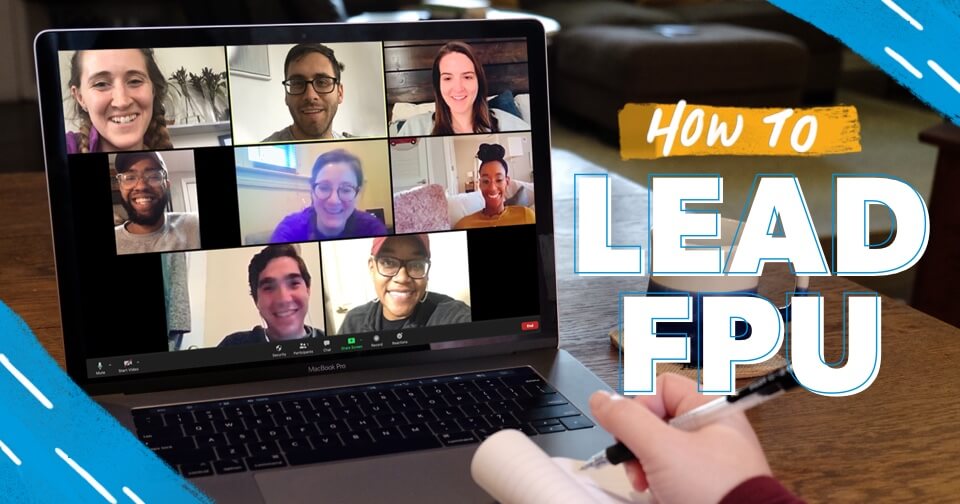
Are you one of the millions of people who’ve started the journey to financial peace?
At some point, you made a choice. You said no to living a normal life (because normal is broke). You said no to debt and goodbye to payments—forever. You’re focused. You’ve got a plan.
Have you thought about sharing that plan with others?
Here’s the deal: Passing on our wisdom is the greatest gift we can give to someone else. Maybe you’re on Baby Step 1 . . . or 2 . . . or 5. It doesn’t matter! You’re blazing a trail that others can follow. People don’t need someone “perfect.” They need someone real. Someone who will say, “I don’t have all the answers. But we’ll do this together.” And right now, people need that hope more than ever.
Get expert money advice to reach your money goals faster!
Sharing our wisdom usually means sharing our story—and our mistakes. Yikes. That can be scary! But if you face the fear and lead a Financial Peace University class, you’ll completely transform someone’s life. And that can be pretty life-changing for you too! Think about how good it feels to help someone else in such a profound way.
Did you catch that? You could change the course of someone else’s life and improve your own. That’s huge! And who knows what might happen next. You might be the reason Joe cuts up his credit cards. But then Joe shares his story with Breanne. And Breanne decides to start saving for her son’s college education. And then her son avoids debt like the plague. And before you know it, the entire family legacy’s been changed. This ripple effect could impact dozens—and maybe even hundreds—of people.
That’s a big deal! And it’s all because they learned the truth about money.
Ready to share your story with someone else and change their life? Consider becoming a Financial Peace University (FPU) coordinator. Here’s how coordinators help provide hope and change lives:
1. They create a space (virtual or physical) to talk about money openly.
In most places, the topic of money is taboo. However, FPU coordinators communicate that it’s okay to talk about money and that financial education is the only way to learn how to manage it better.
Coordinators create a safe environment around the subject of money. They are approachable, trustworthy and honest about their own money journey, so class members know they won’t be judged or shamed when they share their own stories.
Coordinators are also a source of accountability for their members because they genuinely care about the people they’re helping. Class members know that people—their coordinator and probably other class members too—are counting on them to show up and do their part.
2. They model FPU principles.
A coordinator’s most important role is simply leading by example. In other words, they work to take control of their own finances. But coordinators don’t necessarily have to be a picture of financial perfection—or even debt-free. Many are just beginning their own journeys to financial peace, and that’s okay!
A coordinator’s personal money story is valuable when they share it. Whether they’re in the weeds right alongside their class, or they’ve made it to the other side and are an example of what’s possible, the important thing is that they’re living the principles themselves.
A coordinator’s personal money story matters! It helps them inspire and empower their class like only they can.
3. They encourage and guide.
Coordinators don’t teach Financial Peace University themselves (Dave Ramsey does that). But they do guide and support members long after Dave’s teaching ends. Dave can’t be there to sit knee to knee—or screen to screen—with every person, so coordinators take his place.
Coordinators offer their class a listening ear and endless encouragement—which gives them hope and affirmation that they can reach their money goals even in the middle of financial struggles. If you’ve got a heart for serving others and you understand the transforming power of healthy finances, that’s some satisfying work!
There’s a practical side to that too. Many people have questions about their own situations that Dave obviously isn’t there to address, so they look to their coordinator for the answers.
Now, coordinators might not have all the answers, but they have lots of resources available to help find them (like access to a community of experienced coordinators and a network of financial coaches).
A coordinator’s ability to both inspire and inform is the key to making sure their class members stick to the plan long after Financial Peace University ends!
Coordinators matter! They really are superheroes, because life-change through FPU wouldn’t happen without them.
If you’re ready to help people find hope, win with money and change their lives, become a Financial Peace University coordinator today. Lead a virtual class and start making a difference from the comfort of your own home.


